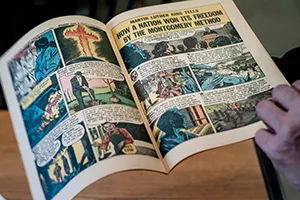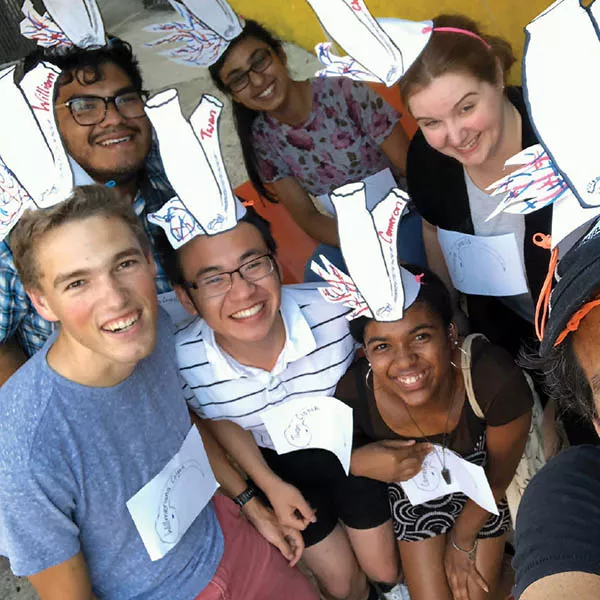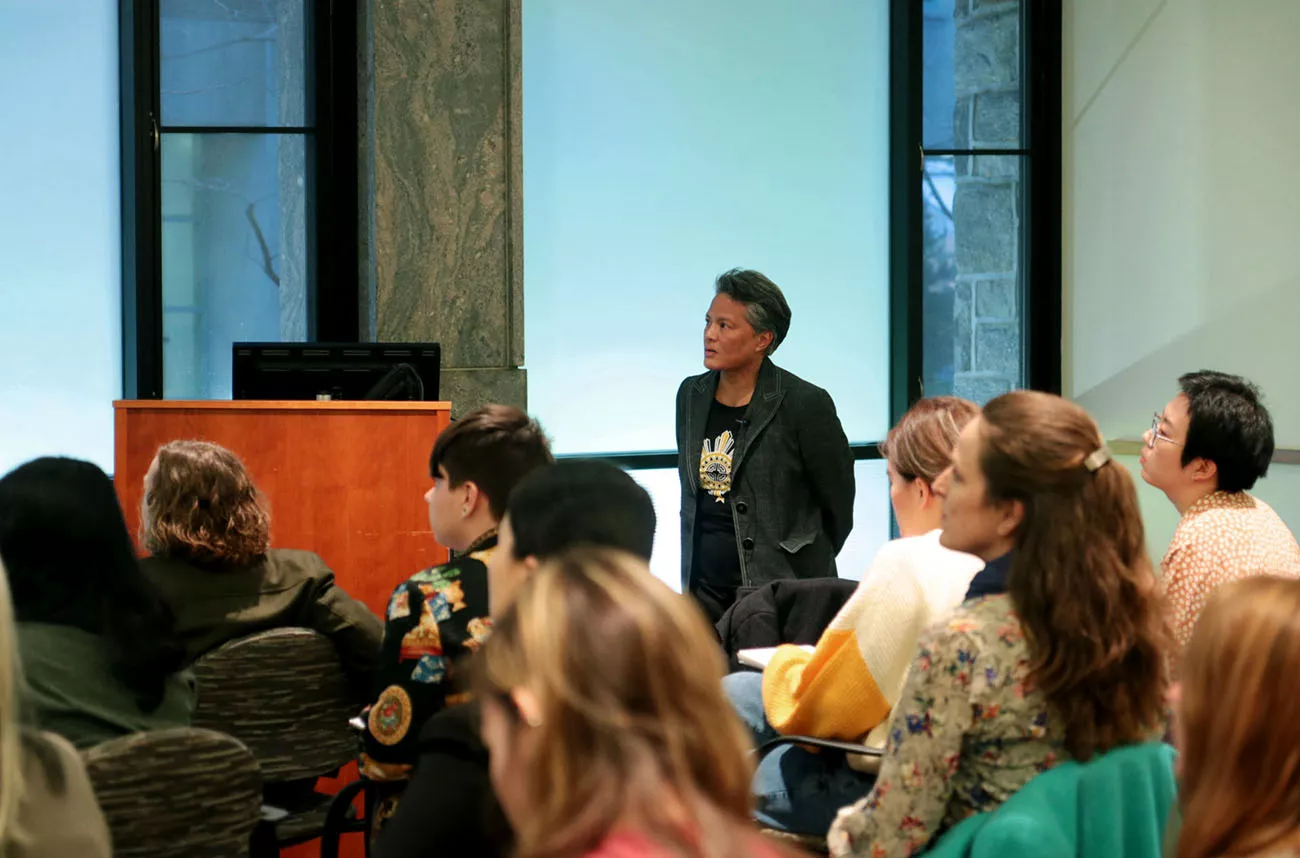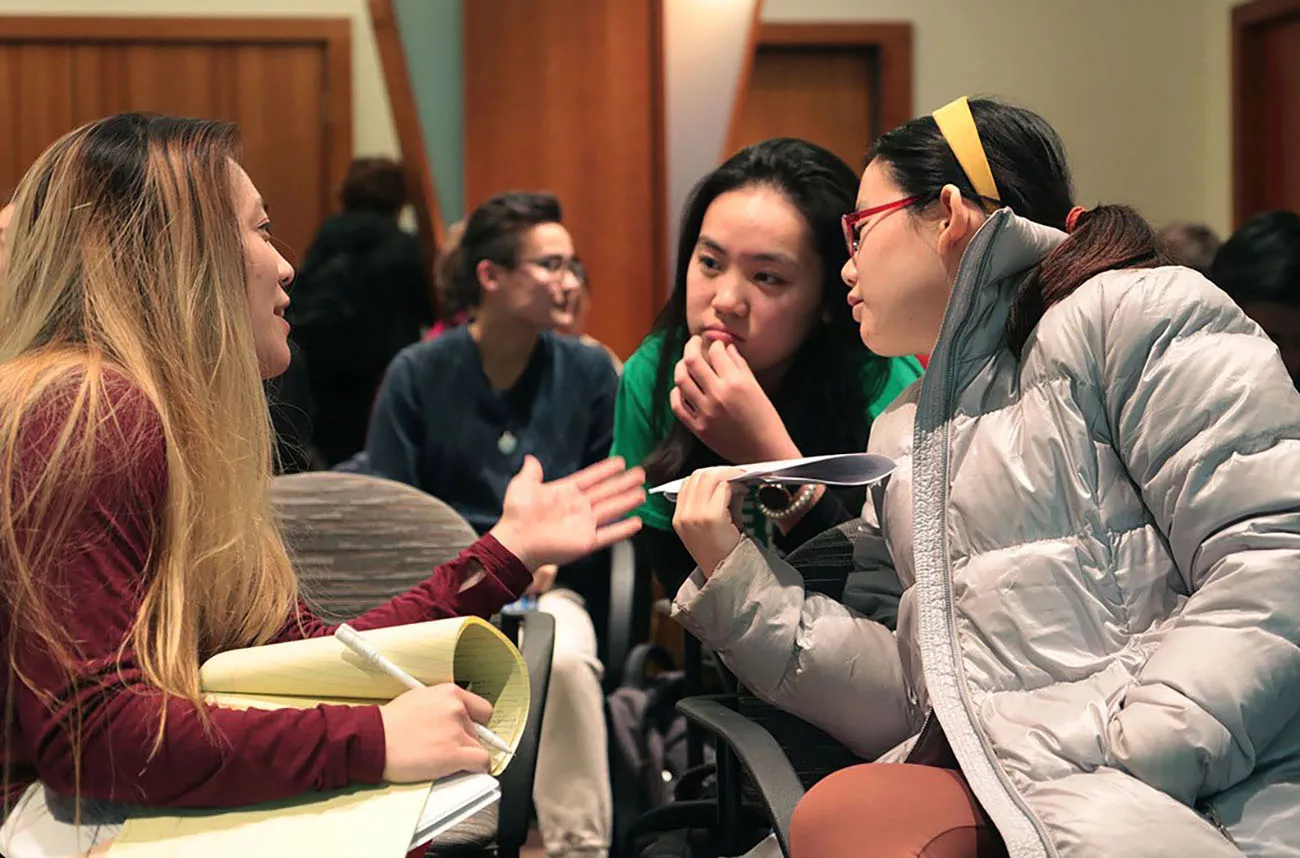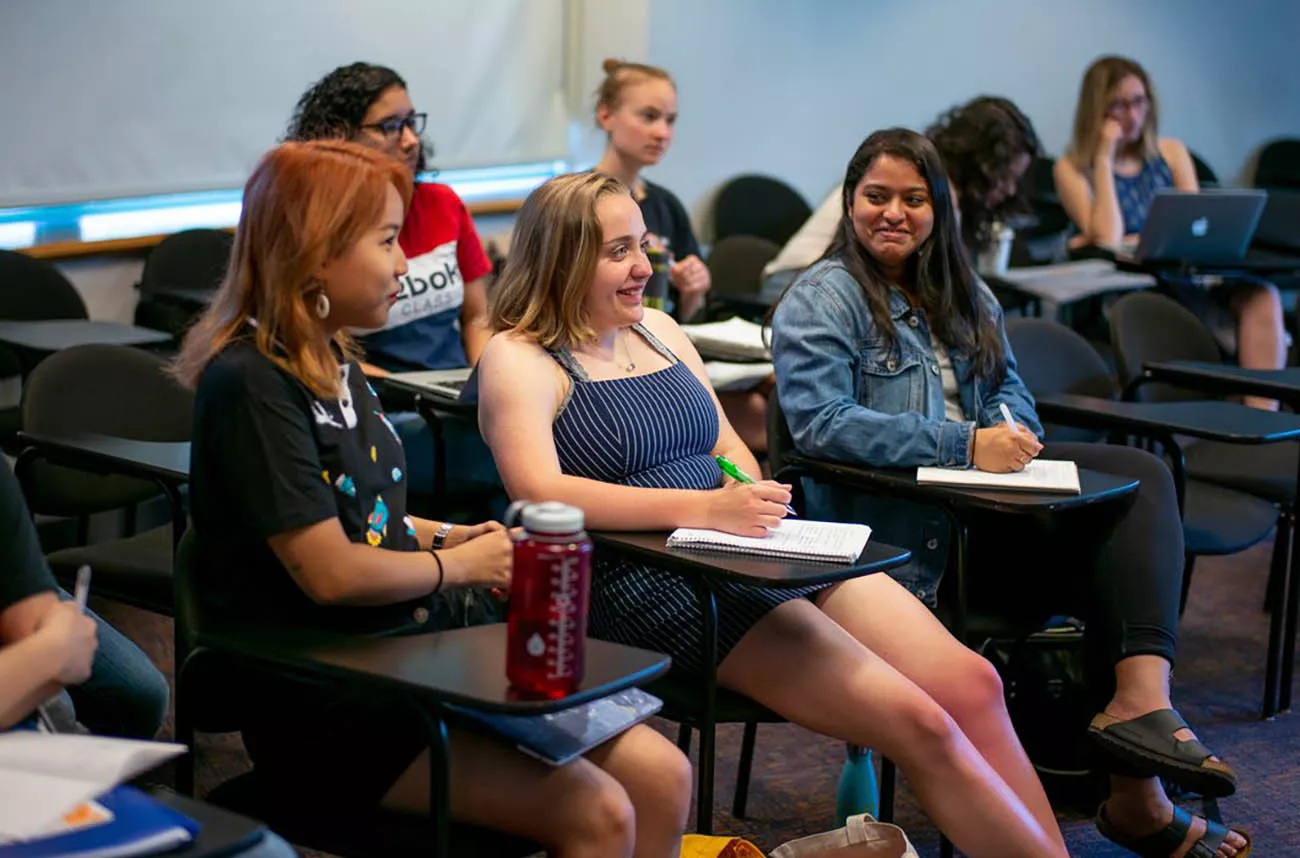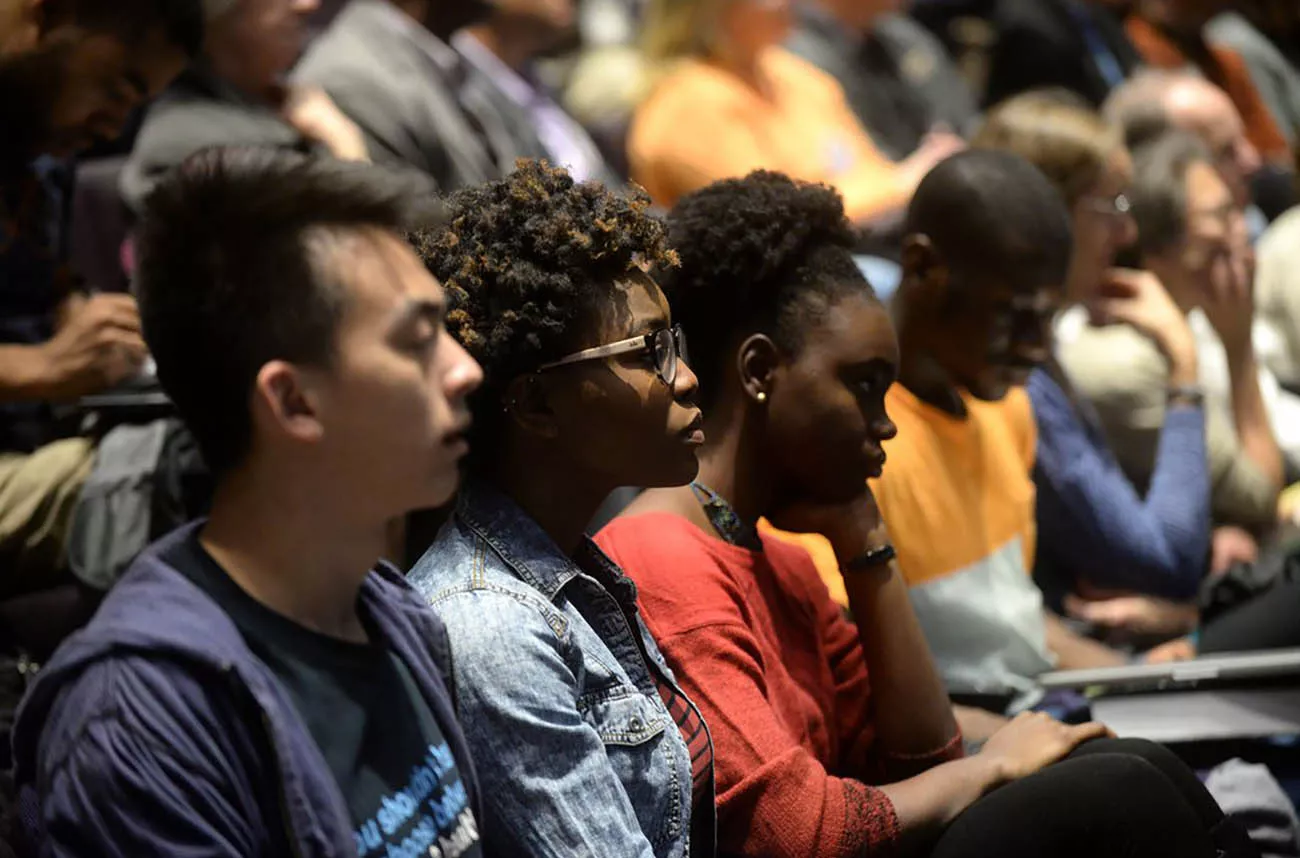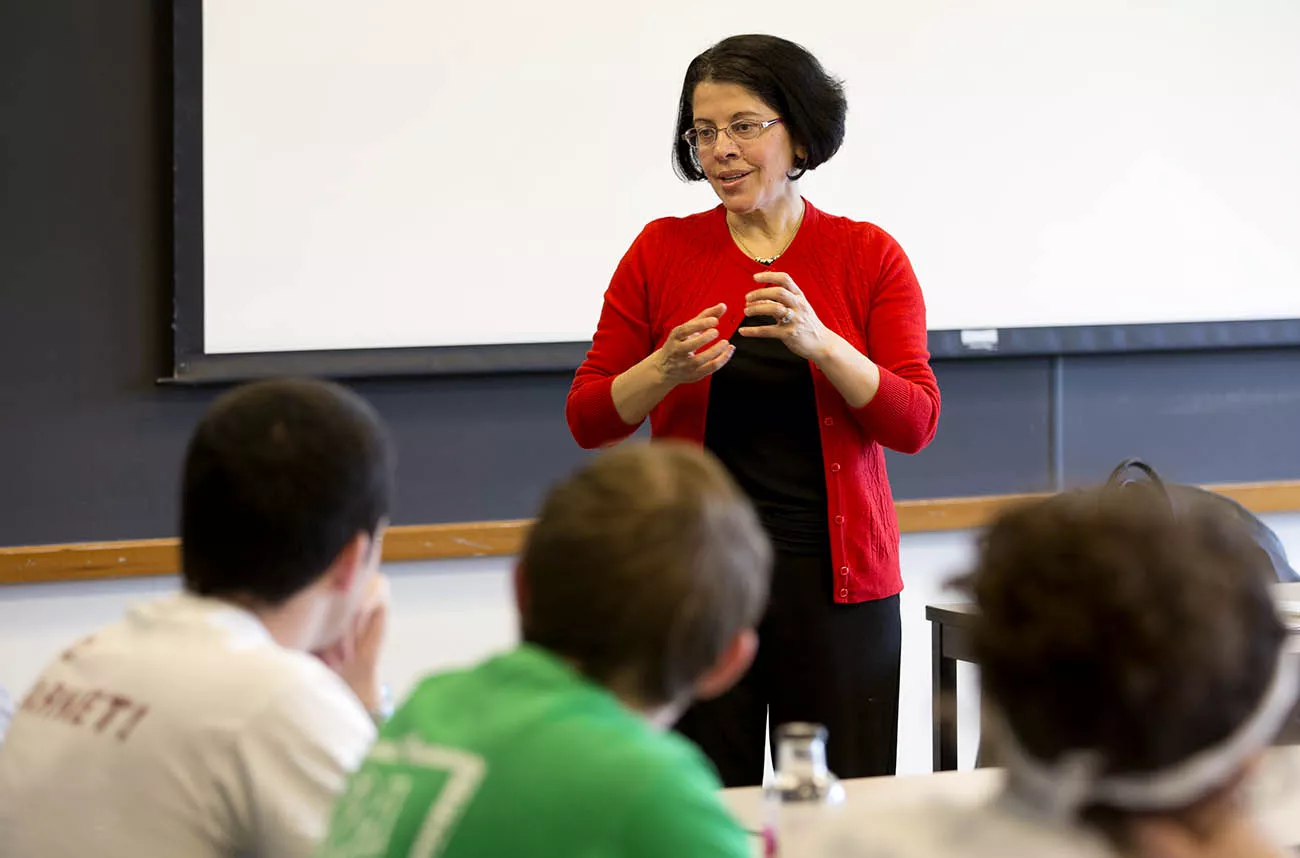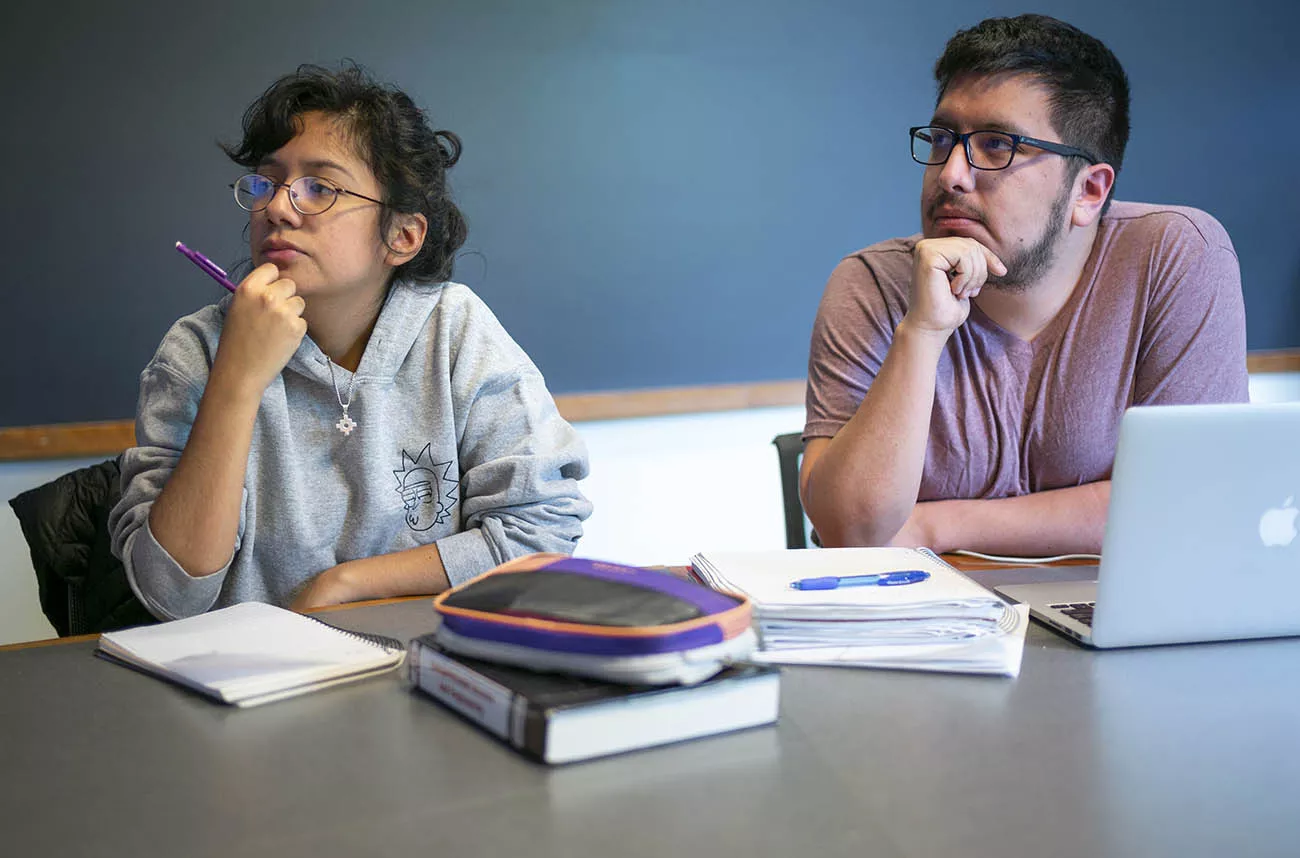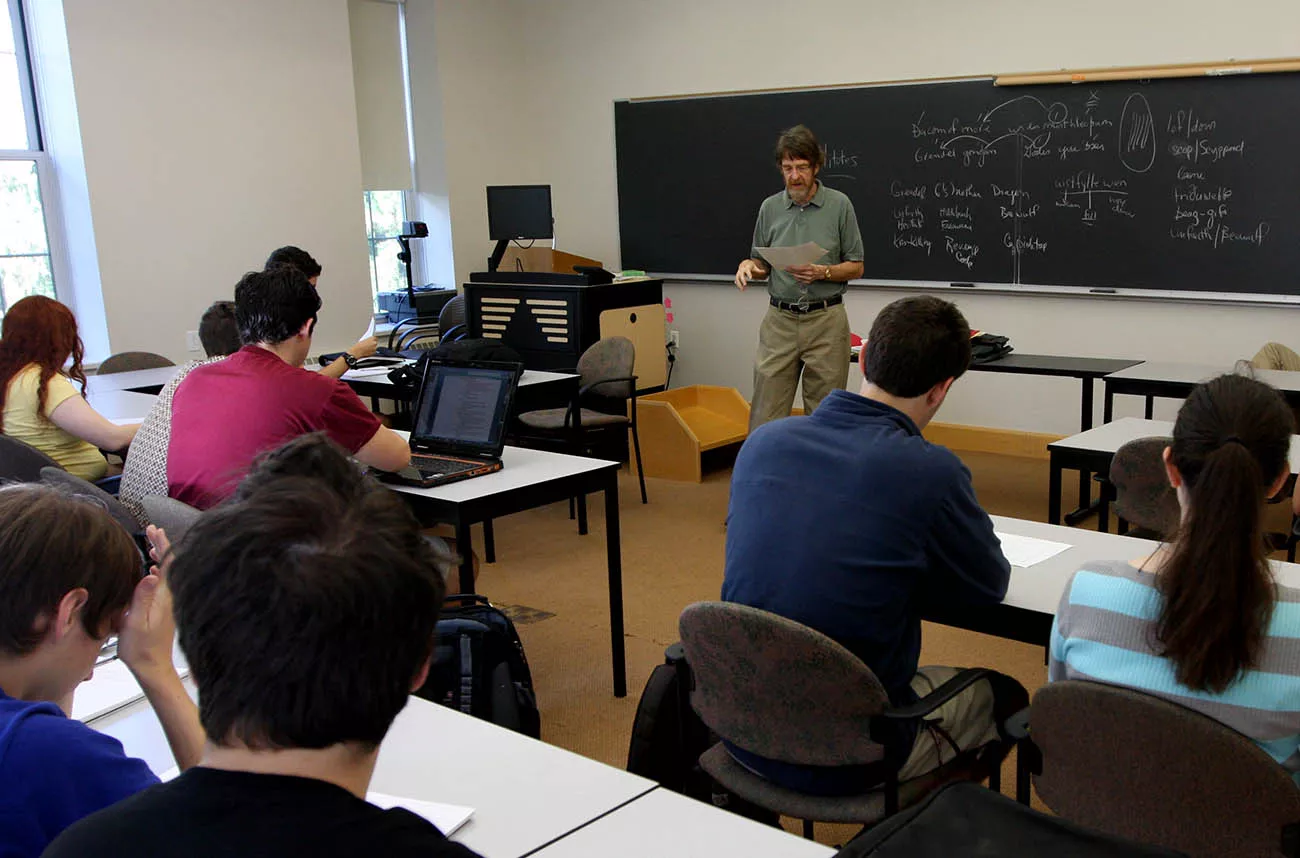Interdisciplinary programs provide greater opportunities for learning about complex topics that are best understood through the intersection of fields of study. Swarthmore is dedicated to investing in its interdisciplinary academic programs to broaden these valuable educational opportunities.
Interdisciplinary Programs
Department Overview
Interdisciplinary Programs
Asian Studies
Asian Studies is an interdisciplinary program that introduces students to the critical and methodological approaches that have informed the study of Asia. As one of the largest interdisciplinary programs at Swarthmore, Asian Studies trains students in the study of diverse texts, images, performances, bodies of knowledge, and cultural practices across geographic and temporal boundaries.
Asian American Studies
The Tri-College Asian American Studies Program enables students to think, read, and write about sociocultural issues relating to the experiences of Asian immigrants and Asian Americans in the United States today. The program centers Asian American perspectives and contextualizes Asian American experiences within the broader field of critical race and ethnic studies, including Black studies, Latinx studies, and Indigenous studies.
Black Studies
The purpose of the Black Studies Program is to introduce students to the history, culture, art, social relationships, and political, religious, and economic experiences of Black people in Africa, the Americas, and elsewhere in the world, and to explore new approaches — in perspectives, analyses, and interdisciplinary techniques — appropriate to the study of the Black experience.
Cognitive Science
Swarthmore cognitive scientists explore the mental structures and physical properties that give rise to the mind’s capacity for perceiving the world, controlling actions, generating and understanding language, performing logical reasoning — and even consciousness.
Comparative Literature
Swarthmore's Comparative Literature Program takes an interdisciplinary approach to the study of literature, using different languages to study works from distinct eras. The program draws upon diverse literary and cultural traditions spanning the globe. Students of comparative literature read extensively as they sharpen their critical thinking, consider the importance of the differences and similarities among languages, and analyze the influence of culture on language.
Environmental Studies
Environmental Studies is inherently interdisciplinary, and brings together the humanities, natural sciences and engineering, and the social sciences to tackle environmental issues of great complexity and socio-political importance. In relation to climate change, for instance, natural scientists provide data to understand the scope of the problem and the processes that result in global warming, while social scientists seek to understand and craft policies informed by the social structures and relations of power and the human behaviors that cause climate change.
Gender & Sexuality Studies
The Gender & Sexuality Studies Program facilitates the interdisciplinary study of social relations of power in a variety of texts, practices, and cultural and historical contexts. The program emphasizes the interrelationships among gender and sexuality, race, class, nation, and ability, and connects such inquiry to local and global politics. Gender & Sexuality Studies brings feminist and queer theory in conversation with research in the humanities, social sciences, and natural sciences through courses offered across the three academic divisions of the College.
Global Studies
The Global Studies Program brings together courses across the curriculum that focus on, or provide means to, understanding and analyzing global processes, systems, and phenomena; the relationship between the local and the global; and trans-border connections between people and events.
Interpretation Theory
The Interpretation Theory Program provides students and faculty with an interdisciplinary forum for exploring the nature, ethics, and politics of representation. Reaching widely across the disciplines, work done in the minor reflects a long-standing drive to cultivate self-consciousness in the use of a significant range of interpretive methods. Students use this course of study to develop a flexible, comparative, critical, historicized grasp of theories of the production of meaning in and through cultural life. They also sharpen their skills in critical reading and intellectual analysis.
Islamic Studies
Islamic Studies is an interdisciplinary program that focuses on the diverse range of lived experiences and textual traditions of Muslims as they are articulated in various countries and regions throughout the world. It draws on a variety of fields, including religion, anthropology, history, and Arabic language and literature to shed light on the multiple expressions of Islam as a religious tradition, the role of Islamic civilization as a force in global history, and the importance of Islamic discourses in the contemporary world.
Latin American and Latino Studies
Swarthmore's Latin American and Latino Studies Program introduces students to the shared history and the rich diversity of Latin American societies, cultures, and nation-states, as well as the transnational dynamics that shape Latino, Latina, and Latinx experiences in the United States. Students in the program draw on a variety of disciplines for a fuller understanding of how to conceptualize “Latin America” and “latinidad” in all their complexity.
Medieval Studies
The Middle Ages, from the 4th to the 15th centuries, were a distinct historical and cultural period in a variety of civilizations, from Western Europe across the Mediterranean and the Middle East and on to southern and western Asia. Far from being the "Dark Ages," these centuries are rich in history, art, language, literature, music, and religious expression.
Peace & Conflict Studies
At levels from the interpersonal to the global, the Peace & Conflict Studies Program provides opportunities to study conflict and peacemaking in many forms. The program's multidisciplinary curriculum examines the causes, practices, and consequences of violence as well as peaceful or nonviolent methods of conflict management, resolution, and transformation. Students explore many factors shaping human conflict, including the psychological, social, cultural, political, economic, biological, religious, and historical.

